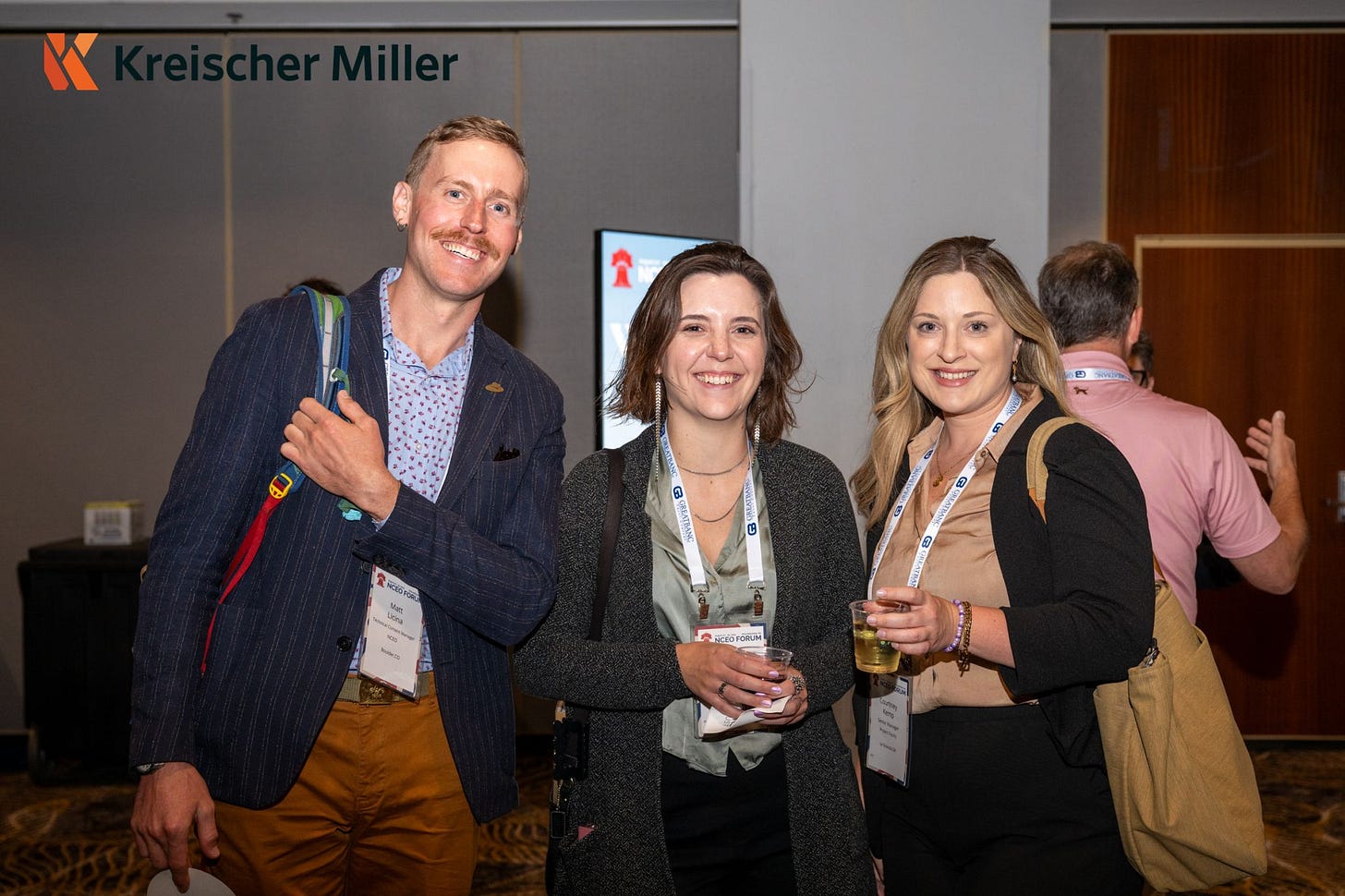Reporting Out
From the 2025 NCEO workshop on employee ownership trusts
In August, Courtney Kemp of Project Equity and the Purpose Trust Ownership Network (PTON) co-led the National Center for Employee Ownership’s second annual workshop on employee ownership trusts, “Demystifying Employee Ownership Trusts.”
She posted a little about it on LinkedIn, then gave The Stakehold the details:
Graeme Nuttall provided a keynote history of EOTs and their international growth.
He emphasized the model’s flexibility, lower costs compared to ESOPs, and strength in protecting legacy and mission. He also shared how EOT adoption has accelerated in the UK to 10 conversions per week, with over 1,800 companies transitioning since 2014.
Zoe Schlag from Common Trust presented on their transaction approach, which is oriented toward pipeline generation and scaling EOT adoption in the U.S.
Courtney Kemp from Project Equity and PTON presented on building a post-transaction culture of employee ownership, sharing practices and lessons for strengthening ownership culture after a transition.
Discussion covered both the opportunities and challenges in scaling EOTs in the U.S. and abroad, including:
Tax and regulatory obstacles in some jurisdictions
Difficulty in locating experienced service providers
Emerging interest in using EOTs for innovative structures such as holding companies
The workshop highlighted international convergence, with Canada, Slovenia, Denmark, and Australia all adopting versions of the EOT model.
Messaging and terminology remain an area of active debate. While employee ownership trust has gained traction, many legal practitioners prefer the more precise purpose trust and others prefer the employee trust. Clear, consistent messaging will be critical to field growth.
Field-building needs include:
Policy advocacy
Cultivation of practitioner networks
Alignment with cooperative and employee ownership movements
A shared focus on clarity and credibility
Overall, the workshop reinforced EOTs as a practical and flexible succession solution.
Courtney is also helping organize TXCEO & PTON’s first Purpose Trust Ownership Conference in Austin next February. Y’all come and see us!




I find it interesting this talk about what to call the EOT, if it should be "EOT", "PT" and/or "ET". (I imagine we can all agree there's no branding value in an "IDGT") and then just below we're calling for "alignment with cooperative and employee ownership movements". In a way, I think this can be quite simple, and it's a pragmatic-if-less-precise move to call these "EOTs". And, what's not being pointed out is that the worker co-op movement has been pulling closer to the big tent of EO for years, even though if we were being very precise, then participants in a worker co-op aren't employees at all, they're worker-owners (due to the fact that the employer-employee relationship has been dissolved). Yet I don't see much push back from the WC world about its inclusion within big tent EO, even if 1 of only 2 words isn't precisely accurate (employee ownership). It's a pragmatic move, and I encourage all EOT advocates to accept the discomfort and roll with it. Besides, as Corey Rosen pointed out in the EOT transition book NCEO put out, there are ways using things like synthetic equity to literally tie in share ownership, even if they are phantom shares. That could be a consolation!